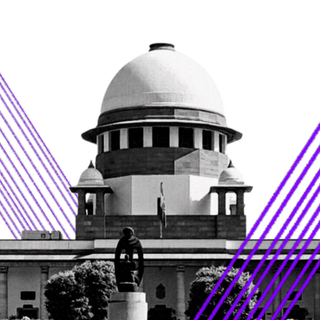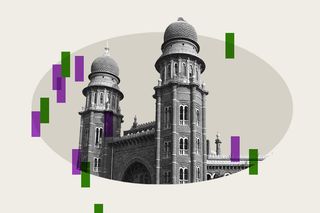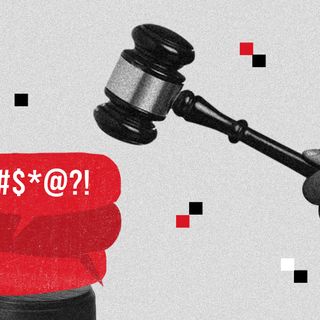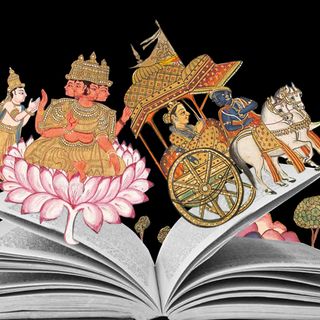
Centre Can’t Use the IT Rules to Restrain Digital Media: Madras HC
Both Bombay and Madras HCs had earlier put a stay on the provisions mandating the platforms to follow a code of ethics.

Yesterday, the Madras High Court prohibited the Centre from taking coercive action against digital media companies under the Information Technology (Intermediary Guidelines and Digital Media Ethics Code) Rules, 2021, which were notified in February this year.
In the context of online news organizations, the rules have been criticized for “encouraging self-censorship” and “excessive governmental control over digital news,” besides the wide range of penalties. Basically, these rules, many fear, will “curb press freedom in the world’s largest democracy” by being “far too intrusive… [and] constrict[ing of] freedom of speech and expression”
“The respondents [Centre] are restrained from taking any coercive action without the permission of the Court,” held the bench comprising Acting Chief Justice M.N. Bhandari and Justice P.D. Audikesavalu. They were hearing a PIL filed by the Indian Broadcasters and Digital Media Foundation, who challenged the provisions before the court.
However, this is hardly the first time the rules have been challenged before Indian courts. Earlier this year, the Kerala HC, too, had prevented the Centre from taking coercive action against Live Law, and subsequently, against the News Broadcasters Association.
Related on The Swaddle:
“We are reporting judgments. Somebody to whom the judgment is not palatable, may make a grievance… Mr. A is writing an article. Somebody takes an objection. I am obliged to take it down. It could be a retired Supreme Court judge writing the article. I cannot issue a notice to him. This can put us in a lot of embarrassing situations,” Advocate Santhosh Mathew, who was representing Live Law in court, had argued.
The Press Trust of India had also previously argued before the Delhi HC, expressing concerns about the “‘draconian consequences’ of non-compliance, including blocking, modification and deletion of content, and compulsory publication of apology, [which] will ‘usher in an era of surveillance and fear, thereby resulting in self-censorship.'”
The Digital News Publishers Association (DNPA) — including media houses like Times of India, India Today, and NDTV, among others — had also filed a petition before the Madras HC arguing that the distinctions between a physical newspaper and its online version, which the rules attempted to create, were “vague and arbitrary.” The DNPA also alleged that digital media organizations are outside the scope of the Information Technology Act, 2000 itself — meaning that the rules wouldn’t legally have the jurisdiction to govern them.
Unlike OTT and social media platforms, which were reportedly consulted before notifying the rules, digital media organizations were not — leaving them with no option to be heard other than approaching courts to address a multitude of grievances.
Related on The Swaddle:
New IT Rules Leave Little Room for Privacy, Free Speech in an Increasingly Surveilled Digital Space
“[T]he rules now will bring government control rather than regulation… Several requirements under them suffer from unconstitutionality and undermine the free expression and privacy [of] millions of internet users in India,” the Internet Freedom Foundation (IFF) noted.
Earlier this year, both the Bombay and Madras High Courts had ordered a stay on some provisions of the rules mandating digital news organizations to follow a code of ethics, and provide for a grievance redressal mechanism.
“The criteria provided in the Code of Ethics are vague, overboard, and will have a chilling effect on the free speech of publishers, as well as the right to access information for consumers of content,” the IFF explained. Elaborating on the concerns with the grievance redressal mechanism under the rules, they said: “[The government] touted the three-tier mechanism as self-regulation by the publishers with minimal governmental interference. On a closer look, it is apparent that the rules envisage much more than ‘minimal government interference.'”
While deciding on the provisions in September, the Madras HC bench of Chief Justice Sanjib Banerjee and Justice PD Audikesavalu said “Prima facie, there is substance to [argument] that the oversight mechanism to control the media by [the] government may rob the media of its independence, and the fourth pillar, so to say, of democracy may not at all be there.”
Devrupa Rakshit is an Associate Editor at The Swaddle. She is a lawyer by education, a poet by accident, a painter by shaukh, and autistic by birth. You can find her on Instagram @devruparakshit.
Related


Can Australia’s ‘Anti Trolling’ Law That Targets Anonymity Really Help Users?
